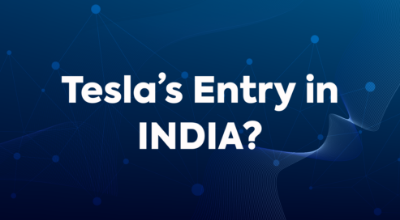Most of you are likely familiar with Elon Musk, a prominent figure in business and investment. With his various ventures, he ranks among the top 3 wealthiest individuals globally. Musk oversees companies such as Tesla, SpaceX, and Neuralink. As the CEO of Tesla, he leads the groundbreaking electric vehicle (EV) manufacturer. Tesla currently holds a leading position worldwide in both market value and second in the sales volume.
Starlink, a satellite-based internet service developed by SpaceX, has made significant progress, establishing a subsidiary in India in 2021 and undergoing the process of regulatory approval to launch its services. It is now on the brink of receiving official approval, with reports suggesting Elon Musk's planned visit to India in April 2024. Musk is scheduled to arrive on April 21 and is expected to meet with Prime Minister Modi on April 22. During this time, significant announcements regarding Starlink's operations and Tesla's entry into the Indian market are anticipated.
According to a government official cited by MoneyControl, the announcements are likely to be of a general nature regarding Tesla's entry into India, rather than specifying particular locations. This is because Tesla typically requires board approval for site-specific announcements, which may occur at a later stage.
Elon Musk has been trying to enter the Indian market for a long time. However high import taxes have eluded him the proper opportunity. In March, Centre announced a revised EV policy slashing import taxes to 15 per cent from 100 per cent on some models if a manufacturer invests at least $500 million and sets up a factory in the country too. With this favourable policy Musk may be more inclined to enter the Indian Market. Recently, Tesla have joined hands with Tata Electronics for the procurement of semiconductor chips for the US-based company’s operations as it eyes local sourcing of components, according to a report by the Economic Times. The firm is in talks with various state governments in India for a manufacturing plant ahead of billionaire Elon Musk’s meeting with Prime Minister Narendra Modi.
The arrival of Tesla could prove advantageous for both the company and India. While Tesla has faced challenges in its endeavours in China, where it was initially attracted by incentives, the rise of strong domestic competitors has posed obstacles to its dominance in the market. As a result, the company is now shifting its focus to India's rapidly expanding electric vehicle sector, enticed by the promising growth opportunities it offers and the Indian government's unwavering commitment to sustainability.
Similarly, India has been striving to bolster its manufacturing ecosystem, lagging behind smaller nations like Bangladesh and Vietnam in market capture. With manufacturing accounting for approximately 13 percent of GDP in 2022, far below China's 28 percent, the government aims to shift focus from agriculture to manufacturing. Nearly 30 percent of India's manufacturing output is attributed to the automotive sector, with hopes that Tesla will revolutionize electric vehicles as Maruti did with internal combustion engines. Additionally, concerns persist over AI's potential threat to jobs, particularly in the BPO sector of India. This necessitates urgent action to cultivate alternative job ecosystems and drive growth. Entry of global companies like Tesla can be a possible alternative solution.
Regarding the impact on domestic EV manufacturers, an expert suggests that the current slowdown in the EV market requires a push, which Tesla could provide. Tesla's entry into India is expected to generate significant attention, giving a boost to the Indian electric car market. The arrival of more players will enhance confidence among both companies and buyers. Tesla is likely to introduce innovations not yet seen in the market, with its entry-level model priced between Rs 25 lakh to Rs 30 lakh. While it may compete with high-end models from Tata Motors and Mahindra, overall, it is expected to benefit the Indian market. Despite the growth in the EV sector, it has not yet reached the levels targeted by the government for 2030. The EV drive is mainly dominated by the two and three-wheelers and e-rickshaws. Challenges such as charging infrastructure and new models have hindered progress in the four-wheeler segment. However, Tesla's entry could enhance choices and stimulate growth.
Given these developments, it is worthwhile to observe how Musk's visit to India unfolds, the nature of the announcements made, and the resulting impact on India's economy and its various stakeholders.


